Toussaint G., Morand-Fehr P., Castel J.M., Choisis J.P., Chentouf M., Mena Y., Pacheco F., Ruiz F.A. (2009). Méthodologie d'analyse et d'évaluation technico-économique des systèmes de production ovine et caprine. In : Pacheco F. (ed.), Morand-Fehr P. (ed.). Changes in sheep and goat farming systems at the beginning of the 21st century : research, tools, methods and initiatives in favour of a sustainable development.
Zaragoza (Espagne) : CIHEAM-IAMZ.
p. 327-374.
(Options Méditerranéennes : Série A. Séminaires Méditerranéens, n. 91).
Proceedings of the Seminar of the Subnetwork on Production Systems of the FAO-CIHEAM Network for Research and Development in Sheep and Goats, 2007/11/15-17, Ponte de Lima (Portugal).
http://om.ciheam.org/article.php?IDPDF=801167
http://om.ciheam.org/article.php?IDPDF=801167
| Titre : | Méthodologie d'analyse et d'évaluation technico-économique des systèmes de production ovine et caprine |
| in : | |
| Auteurs : | G. Toussaint ; P. Morand-Fehr ; J.M. Castel ; J.P. Choisis ; M. Chentouf ; Y. Mena ; F. Pacheco ; F.A. Ruiz |
| Type de document : | Communication à un Congrès (avec Actes) |
| Editeur : | Zaragoza [Espagne] : CIHEAM-IAMZ, 2009 |
| Collection : | Options Méditerranéennes : Série A. Séminaires Méditerranéens, ISSN 0253-1542, num. 91 |
| ISBN/ISSN/EAN : | 978-2-85352-430-8 |
| Format : | p. 327-374 |
| Langues : | Français |
| Langues du résumé : | Anglais ; Français |
| Catégories : |
Catégories principales 06 - AGRICULTURE. FORÊTS. PÊCHES ; 6.4 - Production Agricole. Système de ProductionThésaurus IAMM SYSTEME DE PRODUCTION ; OVIN ; ANIMAL LAITIER ; RACE ANIMAL ; CLASSIFICATION ; METHODE D'ELEVAGE ; TUNISIE |
| Résumé : | Cet article rapporte le travail effectué depuis 1994 par le groupe d'experts du sous-réseau FAO-CIHEAM sur les systèmes de production ovine et caprine, concernant la méthodologie d'évaluation de ces systèmes. L'objectif de ce travail était de mettre au point une méthodologie pour analyser, évaluer et comparer les systèmes de production ovine et caprine, et ainsi pour répondre aux besoins des éleveurs et des agents de développement dans les domaines du diagnostic, du conseil et de l'aide à la décision. La méthode repose sur l'estimation d'un ensemble d'indicateurs directement mesurés, ou d'indicateurs calculés à partir d'autres indicateurs concernant l'exploitation agricole dans son ensemble ou l'atelier ovin ou caprin exclusivement. Les indicateurs sont choisis après validation du groupe d'experts. L'article décrit comment dans certains cas, les difficultés sur le choix d'un ou plusieurs indicateurs ont été résolues. Au total, 196 indicateurs sont décrits dans les tableaux de 1 à 8 avec des conseils sur les conditions de calcul, la signification et l'interprétation de chaque indicateur. Cette méthode repose sur le travail d'enquête des agents de développement qui peuvent être aidés par les éleveurs au niveau de l'enregistrement des données. Les différentes approches pour interpréter les résultats en fonction des objectifs de l'étude sont passées en revue, en particulier l'interprétation par des blocs diagnostics et l'identification des points forts ou faibles de chaque système. La restitution des résultats aux éleveurs est considérée comme une phase essentielle de la méthode. La méthode a été appliquée dans des conditions différentes en Andalousie, en Roumanie, au Portugal et au Nord du Maroc pour validation ; ce qui a permis d'améliorer certains points de la méthode afin qu'elle puisse être appliquée de façon plus large. = This paper presents the work undertaken since 1994 by a working group of experts from sub-network FAO-CIHEAM on systems of sheep and goat production, on evaluation's methodology of such systems. The objective of this study was to set up a methodology for analysing and comparing the various systems of sheep and goat production, and so as to meet farmers and extension officers' requirements in terms of diagnosis, advise and help to decision. This methodology may be applied only if the characteristics of sheep and goat units can be measurable and measured. The method is based on the assessment of a set of directly measured indicators, as well as indicators calculated by other indicators concerning the whole farm or sheep or goat units exclusively. The indicators are selected after validation decided by a working group of experts. The present paper reports on how in some cases, the difficulties on the choice of one or several indicators were solved. On overall, 196 indicators were described in tables from 1 to 8 with advises on conditions of calculation, the significance and interpretation of each indicator. This method is based on the work of survey of development agents likely to be helped by farmers at recording of data. The different approaches for interpreting results in accordance with the objectives of the study are presented in the present paper, particularly the interpretation by indicators sets for diagnostic and identification of major or weak points of each system. The diffusion of results to farmers is an essential phase of the method. This method was applied in different conditions in Andalusia, in Romania, in Portugal and Northern Morocco for validation purpose; this enabled the improvement of some points of the method so as to enlarge its field of application. |
| Congrès : | Proceedings of the Seminar of the Subnetwork on Production Systems of the FAO-CIHEAM Network for Research and Development in Sheep and Goats, 2007/11/15-17, Ponte de Lima (Portugal) |
| Cote : | BM-I61-PAC-2009 |
| URL / DOI : | http://om.ciheam.org/article.php?IDPDF=801167 |














